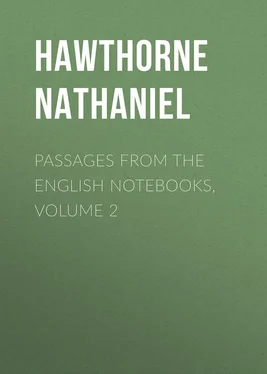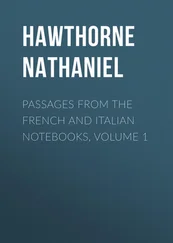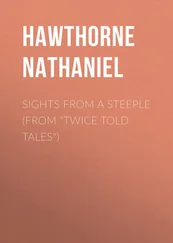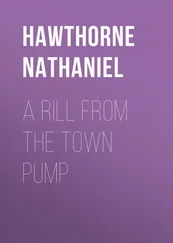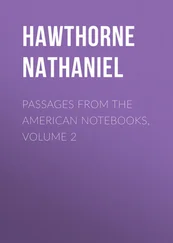Nathaniel Hawthorne - Passages from the English Notebooks, Volume 2
Здесь есть возможность читать онлайн «Nathaniel Hawthorne - Passages from the English Notebooks, Volume 2» — ознакомительный отрывок электронной книги совершенно бесплатно, а после прочтения отрывка купить полную версию. В некоторых случаях можно слушать аудио, скачать через торрент в формате fb2 и присутствует краткое содержание. Жанр: literature_19, foreign_antique, foreign_prose, на английском языке. Описание произведения, (предисловие) а так же отзывы посетителей доступны на портале библиотеки ЛибКат.
- Название:Passages from the English Notebooks, Volume 2
- Автор:
- Жанр:
- Год:неизвестен
- ISBN:нет данных
- Рейтинг книги:5 / 5. Голосов: 1
-
Избранное:Добавить в избранное
- Отзывы:
-
Ваша оценка:
- 100
- 1
- 2
- 3
- 4
- 5
Passages from the English Notebooks, Volume 2: краткое содержание, описание и аннотация
Предлагаем к чтению аннотацию, описание, краткое содержание или предисловие (зависит от того, что написал сам автор книги «Passages from the English Notebooks, Volume 2»). Если вы не нашли необходимую информацию о книге — напишите в комментариях, мы постараемся отыскать её.
Passages from the English Notebooks, Volume 2 — читать онлайн ознакомительный отрывок
Ниже представлен текст книги, разбитый по страницам. Система сохранения места последней прочитанной страницы, позволяет с удобством читать онлайн бесплатно книгу «Passages from the English Notebooks, Volume 2», без необходимости каждый раз заново искать на чём Вы остановились. Поставьте закладку, и сможете в любой момент перейти на страницу, на которой закончили чтение.
Интервал:
Закладка:
Mr. Taylor is reckoned a brilliant conversationist; but I suppose he requires somebody to draw him out and assist him; for I could hear nothing that I thought very remarkable on this occasion. He is not a kind of man whom I can talk with, or greatly help to talk; so, though I sat next to him, nothing came of it. He told me some stories of his life in the Temple, – little funny incidents, that he afterwards wrought into his dramas; in short, a sensible, active-minded, clearly perceptive man, with a humorous way of showing up men and matters… I wish I could know exactly what the English style good conversation. Probably it is something like plum-pudding, – as heavy, but seldom so rich.
After dinner Mr. Tom Taylor and Mr. D – , with their respective ladies, took their leave; but when we returned to the drawing-room, we found it thronged with a good many people. Mr. S. C. Hall was there with his wife, whom I was glad to see again, for this was the third time of meeting her, and, in this whirl of new acquaintances, I felt quite as if she were an old friend. Mr. William Howitt was also there, and introduced me to his wife, – a very natural, kind, and pleasant lady; and she presented me to one or two daughters. Mr. Marston, the dramatist, was also introduced to me; and Mr. Helps, a thin, scholarly, cold sort of a man. Dr. Mackay and his wife were there, too; and a certain Mr. Jones, a sculptor, – a jolly, large, elderly person, with a twinkle in his eye. Also a Mr. Godwin, who impressed me as quite a superior person, gentlemanly, cultivated, a man of sensibility; but it is quite impossible to take a clear imprint from any one character, where so many are stamped upon one's notice at once. This Mr. Godwin, as we were discussing Thackeray, said that he is most beautifully tender and devoted to his wife, whenever she can be sensible of his attentions. He says that Thackeray, in his real self, is a sweet, sad man. I grew weary of so many people, especially of the ladies, who were rather superfluous in their oblations, quite stifling me, indeed, with the incense that they burnt under my nose. So far as I could judge, they had all been invited there to see me. It is ungracious, even hoggish, not to be gratified with the interest they expressed in me; but then it is really a bore, and one does not know what to do or say. I felt like the hippopotamus, or – to use a more modest illustration – like some strange insect imprisoned under a tumbler, with a dozen eyes watching whatever I did. By and by, Mr. Jones, the sculptor, relieved me by standing up against the mantel-piece, and telling an Irish story, not to two or three auditors, but to the whole drawing-room, all attentive as to a set exhibition. It was very funny.
The next day after this I went with Mr. Bowman to call on our minister, and found that he, and four of the ladies of his family, with his son, had gone to the Queen's Drawing-room. We lunched at the Wellington; and spent an hour or more in looking out of the window of that establishment at the carriages, with their pompous coachmen and footmen, driving to and from the Palace of St. James, and at the Horse Guards, with their bright cuirasses, stationed along the street… Then I took the rail for Liverpool… While I was still at breakfast at the Waterloo, J – came in, ruddy-cheeked, smiling, very glad to see me, and looking, I thought, a good deal taller than when I left him. And so ended my London excursion, which has certainly been rich in incident and character, though my account of it be but meagre.
SCOTLAND. – GLASGOW
May 10th. – Last Friday, May 2d, I took the rail, with Mr. Bowman, from the Lime Street station, for Glasgow. There was nothing of much interest along the road, except that, when we got beyond Penrith, we saw snow on the tops of some of the hills. Twilight came on as we were entering Scotland; and I have only a recollection of bleak and bare hills and villages dimly seen, until, nearing Glasgow, we saw the red blaze of furnace-lights at frequent iron-founderies. We put up at the Queen's Hotel, where we arrived about ten o'clock; a better hotel than I have anywhere found in England, – new, well arranged, and with brisk attendance.
In the morning I rambled largely about Glasgow, and found it to be chiefly a modern-built city, with streets mostly wide and regular, and handsome houses and public edifices of a dark gray stone. In front of our hotel, in an enclosed green space, stands a tall column surmounted by a statue of Sir Walter Scott, – a good statue, I should think, as conveying the air and personal aspect of the man. There is a bronze equestrian statue of the Queen in one of the streets, and one or two more equestrian or other statues of eminent persons. I passed through the Trongate and the Gallow-Gate, and visited the Salt-Market, and saw the steeple of the Tolbooth, all of which Scott has made interesting; and I went through the gate of the University, and penetrated into its enclosed courts, round which the College edifices are built. They are not Gothic, but of the age, I suppose, of James I., – with odd-looking, conical-roofed towers, and here and there the bust of a benefactor in niches round the courts, and heavy stone staircases ascending from the pavement, outside the buildings, all of dark gray granite, cold, hard, and venerable. The University stands in High Street, in a dense part of the town, and a very old and shabby part, too. I think the poorer classes of Glasgow excel even those in Liverpool in the bad eminence of filth, uncombed and unwashed children, drunkenness, disorderly deportment, evil smell, and all that makes city poverty disgusting. In my opinion, however, they are a better-looking people than the English (and this is true of all classes), more intelligent of aspect, with more regular features. I looked for the high cheek-bones, which have been attributed, as a characteristic feature, to the Scotch, but could not find them. What most distinguishes them front the English is the regularity of the nose, which is straight, or sometimes a little curved inward; whereas the English nose has no law whatever, but disports itself in all manner of irregularity. I very soon learned to recognize the Scotch face, and when not too Scotch, it is a handsome one.
In another part of the High Street, up a pretty steep slope, and on one side of a public green, near an edifice which I think is a medical college, stands St. Mungo's Cathedral. It is hardly of cathedral dimensions, though a large and fine old church. The price of a ticket of admittance is twopence; so small that it might be as well to make the entrance free. The interior is in excellent repair, with the nave and side aisles, and clustered pillars, and intersecting arches, that belong to all these old churches; and a few monuments along the walls. I was going away without seeing any more than this; but the verger, a friendly old gentleman, with a hearty Scotch way of speaking, told me that the crypts were what chiefly interested strangers; and so he guided me down into the foundation-story of the church, where there is an intricacy and entanglement of immensely massive and heavy arches, supporting the structure above. The view through these arches, among the great shafts of the columns, was very striking. In the central part is a monument; a recumbent figure, if I remember rightly, but it is not known whom it commemorates. There is also a monument to a Scotch prelate, which seems to have been purposely defaced, probably in Covenant times. These intricate arches were the locality of one of the scenes in "Rob Roy," when Rob gives Frank Osbaldistone some message or warning, and then escapes from him into the obscurity behind. In one corner is St. Mungo's well, secured with a wooden cover; but I should not care to drink water that comes from among so many old graves.
After viewing the cathedral, I got back to the hotel just in time to go from thence to the steamer wharf, and take passage up the Clyde. There was nothing very interesting in this little voyage. We passed many small iron steamers, and some large ones; and green fields along the river-shores, villas, villages, and all such suburban objects; neither am I quite sure of the name of the place we landed at, though I think it was Bowling. Here we took the railway for Balloch; and the only place or thing I remember during this transit was a huge bluff or crag, rising abruptly from a river-side, and looking, in connection with its vicinity to the Highlands, just such a site as would be taken for the foundation of a castle. On inquiry it turned out that this abrupt and double-headed hill (for it has two summits, with a cleft between) is the site of Dumbarton Castle, for ages one of the strongest fortresses in Scotland, and still kept up as a garrisoned place. At the distance and point of view at which we passed it, the castle made no show.
Читать дальшеИнтервал:
Закладка:
Похожие книги на «Passages from the English Notebooks, Volume 2»
Представляем Вашему вниманию похожие книги на «Passages from the English Notebooks, Volume 2» списком для выбора. Мы отобрали схожую по названию и смыслу литературу в надежде предоставить читателям больше вариантов отыскать новые, интересные, ещё непрочитанные произведения.
Обсуждение, отзывы о книге «Passages from the English Notebooks, Volume 2» и просто собственные мнения читателей. Оставьте ваши комментарии, напишите, что Вы думаете о произведении, его смысле или главных героях. Укажите что конкретно понравилось, а что нет, и почему Вы так считаете.
